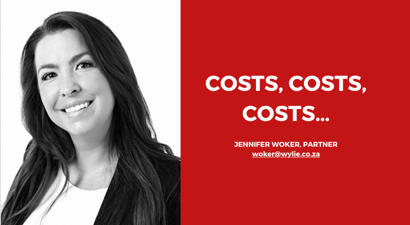Competition Law Update, Competition Act penalties to increase in key areas, featured in Business Report.
THE administrative penalty imposed on companies who contravene the Competition Act is set to increase substantially in certain key instances.
This will happen if the Competition Commission’s new draft guidelines for the determination of these penalties is implemented.
The draft guidelines include a provision to make a holding or parent company liable for the payment of the final administrative penalty where a subsidiary has contravened the act.
In addition, the penalty under certain circumstances will be based on the annual turnover of the holding or parent company in the prior year and not that of the subsidiary company. The penalty is subject to a statutory cap of 10 percent of the annual turnover of the offending company in the prior year.
The draft guidelines were published for comment in the Government Gazette last month. The deadline for the submission of comments is noon today.
Jennifer Finnigan, a partner at Shepstone & Wylie attorneys, said the fact the guidelines existed was positive because one of the problems anybody experienced in dealing with the Competition Act was the degree of uncertainty in any given case.
Finnigan added it was quite clear the commission intended to “go after holding companies and group turnover”.
This is despite the Competition Appeal Court in the alleged collusion case against Loungefoam and Vitafoam, both controlled by the Steinhoff group, rejecting the commission’s attempt to base the penalty on their collective turnover.
Finnigan said the provision in the draft guidelines making a holding or parent company liable for the contraventions of a subsidiary had been adopted from the European approach, where the worldwide turnover of a group was taken into account for the purposes of imposing a penalty for a contravention that took place in Europe.
“I think the battle lines are being drawn because the Competition Commission wants to go after parent companies or groups for contraventions by subsidiaries. It’s going to be interesting to see how this plays out,” she said.
Naasha Loopoo, an associate at law firm Cliffe Dekker Hofmeyr and who previously worked in the enforcement and exemptions division at the commission, said the guidelines promoted objectivity and transparency in outlining the methodology to be implemented by the commission in determining administrative penalties. The purpose of these would be to conclude consent orders and settlement agreements, and recommend an administrative penalty in a complaint referral before the Competition Tribunal.
Loopoo said this methodology was based on a six-stage test, which in essence comprised the determination of the affected turnover; the calculation of the base amount; the duration of the contravention; the consideration of the statutory limit in the Competition Act; a consideration of aggravating and mitigating factors; and a consideration of the statutory limit in the act.
She said the commission might in certain instances impute liability on a holding company where its subsidiary company had been found to have contravened the act. But, as the commission put it, “the imposition of administrative penalties is not a precise science”, and the competition authorities would continue to apply discretion on a case-by-case basis, she added.
Loopoo said this implied that the guidelines were in no way binding on the competition authorities.
The guidelines state that in determining whether it was applicable to impute liability on a holding or parent company where its subsidiary had contravened the Competition Act, the commission should consider a number of factors.
These include whether the parent or holding company wholly owned the subsidiary; directly controlled the subsidiary or had a decisive or material influence over the commercial policy of the subsidiary; had knowledge of the subsidiary’s participation in the contravention; or derived substantial benefit from the activities of the subsidiary.
Written by Roy Cokayne Senior Journalist, Business Report.





